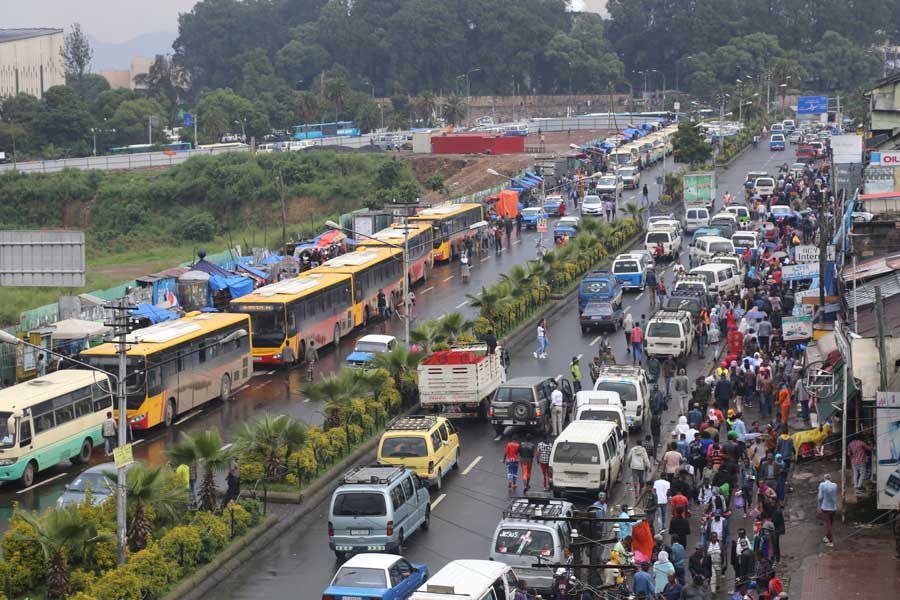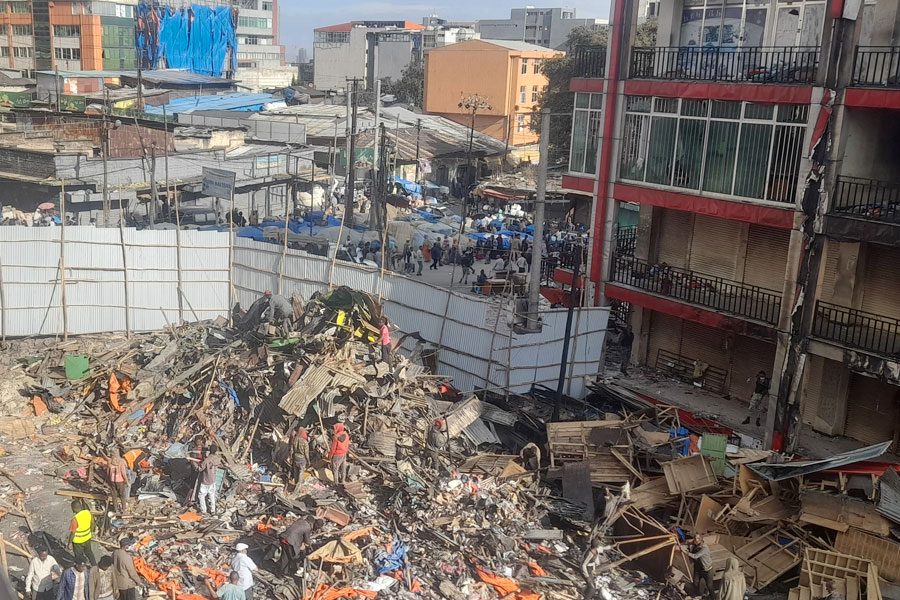
Viewpoints | Aug 29,2020
The World Bank has approved 58 million dollars in additional financing for a nationwide project supporting close to million beneficiaries from the most underprivileged and vulnerable segments of urban populations.
The grant is supplementary to 400 million dollars in funding allocated by the Bretton Woods institution when the Urban Productive Safety Net & Jobs Project was launched last year. The federal government chips in 150 million dollars to cover the five-year project.
The project office requested the additional financing seven months ago. Project managers attributed the pandemic, climate change, armed conflict leading to mass displacement, and worsening macroeconomic conditions to the plea for more funding.
"Unexpected bills were covered by the government," said Mekonnen Yaie, a project coordinator at the Ministry of Urban Development & Infrastructure.
The World Bank nodded to the proposal two weeks ago following negotiations with officials from the Ministry of Finance. The funds are to be disbursed in three rounds; the first bundle of 17 million dollars has already been transferred.
The project aspires to reach over 1.6 million people living in poverty in urban areas, over 120,000 internally displaced persons (IDPs), and returnees from the Middle East. It also entails permanent direct financial support for over 11,000 people and youth apprenticeship programmes for a similar number of people.
The Productive Safety Net Programme (PSNP) was launched in 2005, aimed at addressing rural food insecurity by providing financial opportunities and building resilience to crises through cash transfers, public works, and nutritional feeding programmes.
The project was implemented in four phases and expanded gradually to cover close to eight million beneficiaries from 2.5 million rural households, according to a report from the Ministry of Agriculture.
The first rendition of the Productive Safety Net Project (UPSNP) was launched in 2016 with a total projected cost of 450 million dollars, of which 300 million dollars was obtained from the World Bank. When the project lapsed at the end of last year, it had managed to reach over 1.4 million people in 11 urban areas including Addis Abeba.
Close to 142,000 individuals have thus far received 2.4 billion Br in grants as part of a programme that encourages saving and workshopping business plans. The individuals saved over 860 million Br. Women accounted for over three-quarters of the total, while half managed to start their own businesses and most of the remaining have found employment.
Beneficiaries are obliged in social development and environmental protection activities in waste management, cleaning, urban beautification, reforestation, and public works within a radius of 100m from their homes.
Payment depends on family size – an individual with four dependent family members earns 1,920 Br a month for 16 days of work. Work hours are capped to four days for a person with no dependents. Beneficiaries are compelled to keep a fifth of their earnings in savings accounts.
Over 2,000 people in Kirkos District are among the beneficiaries. They are paid 120 Br for five hours of work a day – almost double what the project was offering in its early days.
Two months ago, Kirkos District officials received instructions from the project office to include an additional 1,575 beneficiaries in the project, chosen from among the most destitute in the area. When the project was launched, the District was allocated 27.5 million Br to implement the project. Beneficiaries were first paid 170 Br a month.
"We increase the disbursements every year considering the surge in living costs," said Gana Godebo, District project coordinator.
Gadissie Debebe, 36, is among the beneficiaries in Kirkos. She lives with her 18-year-old daughter in dilapidated and rented quarters. She is paid close to 2,000 Br a month for providing environmental cleaning services.
"It's not enough to support my daughter," said Gadissie.
To make ends meet, she works a menial job at Misrak Flour, Bread & Biscuit Factory earning 1,700 Br a month.
It is difficult but Gadissie concedes she is better off with support from the project than not.
Beneficiaries are eventually expected to "graduate" from the programme after attending training and coming up with a business plan. The project provides seed money and the earnings they had saved to get the business started.
Experts say the project's intentions were good but criticise it for ineffective implementation and unintended consequences.
Messay Mulugeta (PhD) is an associate professor of food security studies at Addis Abeba University. He observes the project had a significant impact on improving the livelihoods of the most vulnerable, but argues it was not as productive as it should have been.
"It instilled a sense of financial dependency and low motivation for work," said Messay.
PUBLISHED ON
[ VOL
, NO
]

Viewpoints | Aug 29,2020

Commentaries | Sep 16,2023

Editorial | Oct 30,2021

Radar | Jul 09,2022

Radar | Aug 05,2023

Covid-19 | Jun 07,2020

Fortune News | Jul 15,2023

Radar | Oct 03,2020

Featured | Oct 27,2024

Fortune News | Feb 26,2022

Dec 22 , 2024 . By TIZITA SHEWAFERAW
Charged with transforming colossal state-owned enterprises into modern and competitiv...

Aug 18 , 2024 . By AKSAH ITALO
Although predictable Yonas Zerihun's job in the ride-hailing service is not immune to...

Jul 28 , 2024 . By TIZITA SHEWAFERAW
Unhabitual, perhaps too many, Samuel Gebreyohannes, 38, used to occasionally enjoy a couple of beers at breakfast. However, he recently swit...

Jul 13 , 2024 . By AKSAH ITALO
Investors who rely on tractors, trucks, and field vehicles for commuting, transporting commodities, and f...

Jul 5 , 2025
Six years ago, Ethiopia was the darling of international liberal commentators. A year...

Jun 28 , 2025
Meseret Damtie, the assertive auditor general, has never been shy about naming names...

Jun 21 , 2025
A well-worn adage says, “Budget is not destiny, but it is direction.” Examining t...

Jun 14 , 2025
Yet again, the Horn of Africa is bracing for trouble. A region already frayed by wars...